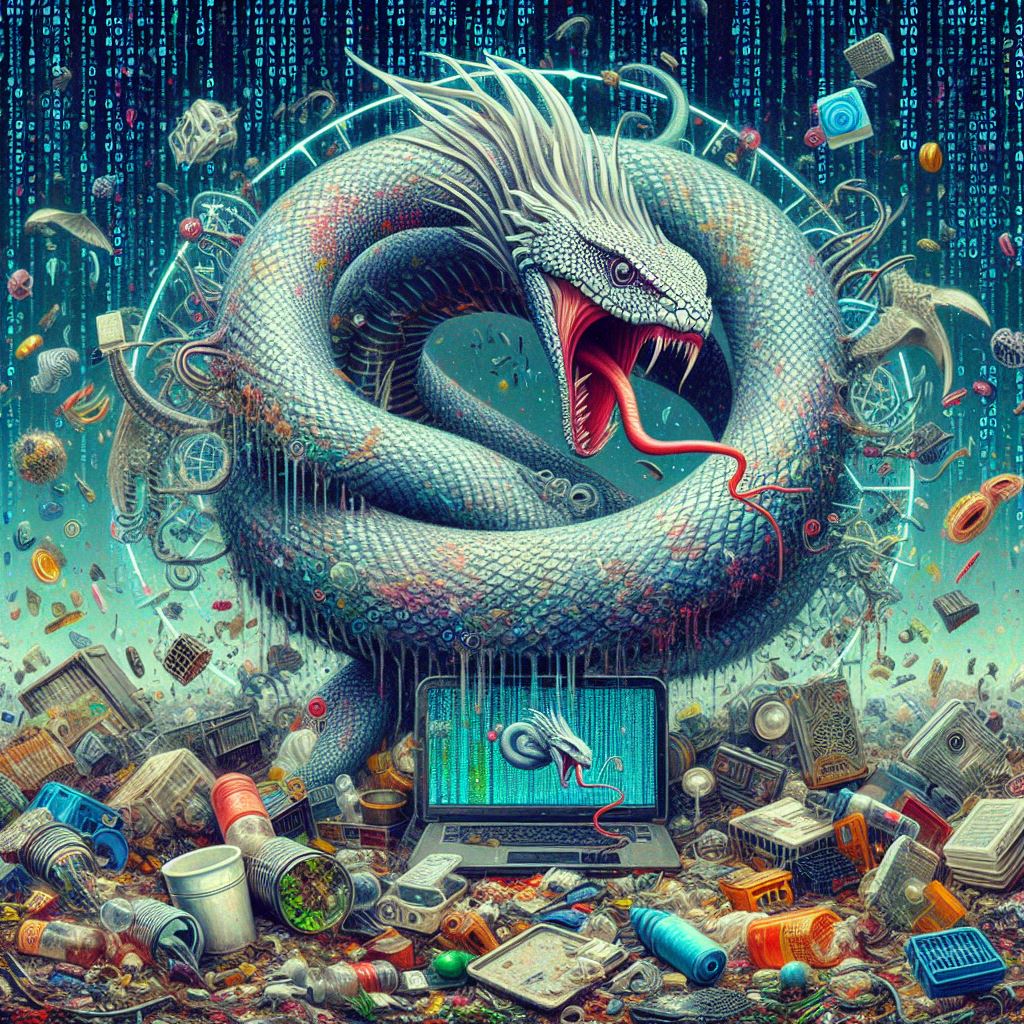All we can do is teach each other to be like ourselves. That’s all we are able to do, that’s all we know how to do.
Of course we don’t see it like this – we generally think that we are being a good influence on people, that we are helping them, teaching them the right way, imparting the correct ethical and moral outlook to them, and so on. If we have children we might think that we are ‘bringing them up’ in the right way, or we might think – if we happen to be teachers – that we are educating them.
But really we’re just influencing people to be like us, helping them to be like us, teaching them to be like us, imparting our own ethical and moral outlook to them, and so on.
Most of the time it is true that we aren’t actually trying to teach people anything – we’re just interacting with them in whatever way it is that we interact with people. We’re just doing whatever it is that we do because that’s what we do. Pretty much obliviously.
But even then we’re trying to teach people to be like us. We’re just doing it unconsciously. We’re interacting with people on the basis that we take to be the ‘right way’ and so we’re assuming that they should be interacting on this basis too. If they do we generally reward them by ‘getting on with them’ and if they don’t interact in the way that we think they should do then we punish them by looking at them in a funny way, ignoring them, giving them the cold shoulder, taking the piss out of them, or getting angry with them. We don’t ‘get on with them’. And so we’re training people to be like us – if they ‘accept’ the training that is, and don’t rebel.
And of course other people will be trying to train us to be like them, they will be giving us ‘behavioural therapy’ to get us to see the world like they do. In this way life is an ongoing battle in which everybody automatically (or unreflectively) tries to get everyone else to adopt the same viewpoint, the same outlook on things. That’s the name of the game. When other people don’t fall in with us we feel peeved, we feel disgruntled, we feel disappointed, we feel irritated or angry or even enraged. We complain.
It might look to the causal observer that this is not what is going on in the world, but this is exactly what is going on – this and nothing else. We’re expecting everyone else to have the same prejudices and opinions and half-baked beliefs that we do, and getting unhappy if they don’t. Social behaviour – whilst it may look diverse – all revolves around this very simple, very basic idea, the idea that we like people to be cognitively congruent to us (the more congruent the better) and we have all sorts of strategies to bring this outcome about.
What we essentially do is that we make agreements with other people – we form collusions. Collusions are great because they guarantee us a group of people who can be relied upon to look at the world in the same way that we do. This puts us in a formidably powerful position – if we meet someone who is different to us we can then gang up on them and either take the piss out of them or exclude them from everything that is going on. Collusions happen all the time – it is extraordinarily rare to meet a human being who isn’t part of some collusion. Religion is a collusion. Society as a whole is one big collusion. Our ‘positive knowledge system’, our way of understanding the world is a collusion.
This is really all a shockingly brutish, senseless and thoroughly uninspiring business. There is no grace to it, no kindness to it. There is no sensitivity to it, no genuine intelligence or curiosity to it. As Krishnamurti says, it is cruel and brutal. After all, all we are doing is unconsciously passing on whatever pointless, suffering-producing pattern of restriction it is that has previously been passed on to us. Someone did it to us, and so we do it to someone else. And far from being honest about what is going on we think – whenever we do think about it, that is – that we are doing them a favour. As a society, we say that automatically passing on the same arbitrary pattern of restrictions that has been passed on to us is ‘education’.
It could also be said that there is no ‘virtue’ to this business of unconsciously passing on our own arbitrarily limited way of being in the world. There is no virtue to it because it is all pure, blind inertia.
Inertia means that ‘I am doing it because I am doing it’. Inertia means that I am doing it because it is the easiest thing to do. It means that I am doing it because actually questioning what I am doing would be difficult, would be painful.
I am doing it – in other words – because when I abdicate responsibility for what I am doing by ‘handing over’ to the dead mechanical process this is by far the easier option for me. This is the only reason I am happy to be going along with it. This is the only reason I am doing what I am doing.
Another way of putting this would be to say that in this wretched business of ‘passing on restriction’ we are being totally and unreservedly ‘selfish’. In a purely technical sense this is indeed what we are being – we are inevitably being ‘selfish’ because that’s all we are able to be.
Of course the word ‘selfish’ is generally used in a very colloquial way and as such it generally has an overtly moralistic tone to it. The implication when this term is used is that the person to whom the word is directed should stop being so disgracefully and unashamedly self-centred and should make the moral effort to be unselfish instead. The message is that we should stop thinking of ourselves and think of others instead.
This however is total nonsense. We have no choice whatsoever in the matter – we do not have the option of being genuinely unselfish and if we think we do then we are simply deluded. All we can do is to be selfish and if we try to be ‘unselfish’ then we are ‘trying to be unselfish in a selfish way’. How can the self be unselfish?
Selfishness underlies everything. All I can do is pass on my own way of seeing the world, my own way of being in the world. There’s nothing else I can do!
I have the choice of either being overtly selfish (i.e. honestly selfish) or being covertly selfish. I can either be ‘up front’ about being selfish or I can claim to be unselfish whilst actually being just as selfish as everyone else. In the second case I get to feel good about myself, I get to feel superior, I get to look down on people. This is therefore a real bonus – I get to be selfish and yet feel self-righteous about it at the same time.
This is what conventional morality is all about – it is a sneaky collusion which allows us to obtain the extra benefit of ‘feeling that we’re better than other people’. Put this way, it is very easy to see that conventional morality – which pays lip-service to being ‘unselfish’ – is actually a clever way of being extra-selfish, or being super-selfish. There’s no one as gratuitously, blatantly, flagrantly, unashamedly selfish as a person who pretends to be unselfish! Conventional morality equals control and control equals ‘the self’.
We don’t have the option of being unselfish because all we ever do is try to teach everyone else to be like us, and this is the most selfish thing imaginable! Being unselfish would mean that we’re not actually passing anything on. On the contrary, we’re ‘letting things be’.
In order for me to be ‘not-selfish’ I would have to be able to meet people without automatically trying to pass on my unexamined pattern of restrictive thinking on to them. In order to be genuinely ‘unselfish’ I would have to be able to refrain from thinking that my way is the only way simply because it happens to be my way.
Being truly unselfish would mean being aware of my own pointlessly restricted way of seeing the world, being aware of my own pointlessly limited modality of interacting with the world, and not automatically assuming that there is ‘virtue’ in it.
Needless to say, as soon as I do become aware of the pattern of restrictions that defines me, and makes me see the world in the way that I do, and act in the world the way that I do, I see that there is no virtue in it whatsoever. Far from seeing any virtue in ‘passing it on’, I see that ‘passing it on’ is actually the very opposite of virtue, the very antithesis of virtue.
As soon as I become aware of what’s going on with me I see the wretched pain-producing shadow that I carry around with me everywhere I go, the frightful suffering-producing shadow that I automatically try to pass on to everyone I meet. When I become conscious I see the dark and suffocating prison that I wretchedly exist in, and perversely want everyone else to exist in too.
But who wants to see something like this?
Image credit – unite.ai






